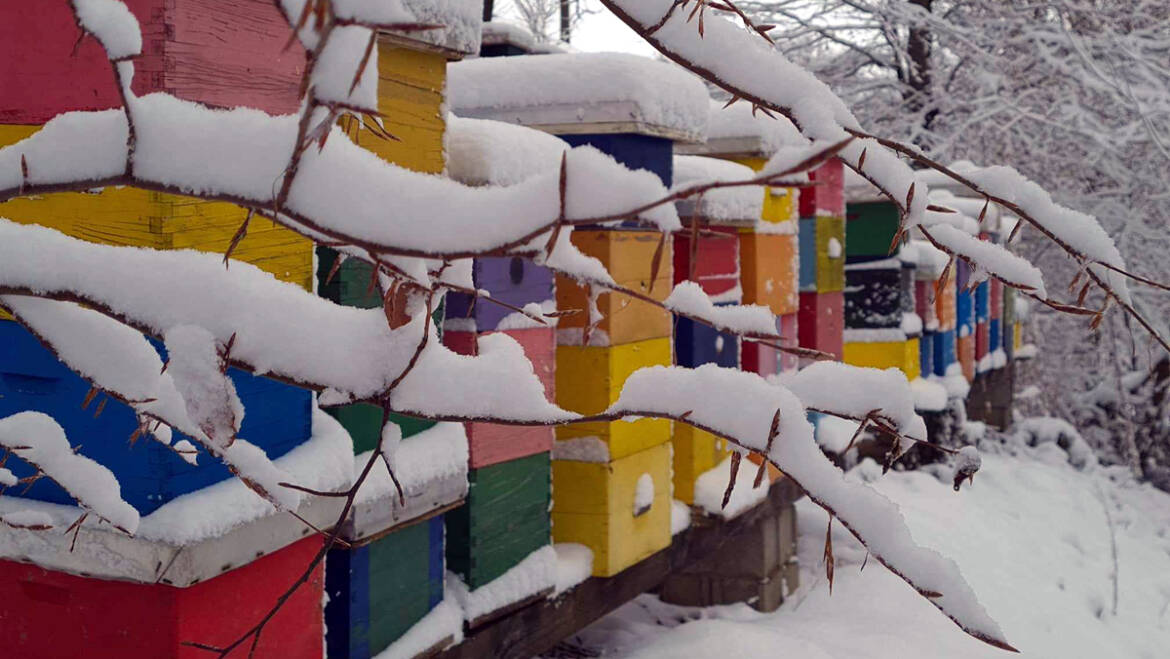Beekeeping is a fascinating hobby and a valuable contribution to agriculture and the environment. Bees are a tireless pollinators that ensure the reproduction of many plant species, and they also offer delicious, healthy honey and other valuable bee products.
If you are curious and wish to enter the world of beekeeping, here is some advice that will help you get started:
1. Education of beekeepers:
Before you get bees, it is important to educate yourself about beekeeping. Read books, follow various available courses or come to us, experienced beekeepers, for advice. Get acquainted with biology of bees, beekeeping techniques, equipment and challenges that you could potentially face. For beginners, in addition to providing placement for beehives on our estate with our own beehives, we also offer full education / courses. Contact us and check the conditions.
2. Location of the apiary:
Chose the appropriate location for your apiary. Ideally, it should be located far from the neighbouring houses where the bees might disturb, main roads, as well as agricultural areas where pesticides are often used. Bees need a lot of space for flying where they have access to various flower sources.
3. The equipment:
Get the equipment for beekeeping, including beehives, frames for combs, clock bases, protective clothing, smoker and other necessary tools for working with bees. Check the local regulations about what equipment is necessary for beekeeping in your area.
4. Where to get the bees:
Find a reliable beekeeper to buy healthy bee colonies. Of course, we can help with that. For beginners we recommend buying ready-made nuclei- bee colonies with a queen, which makes the beginning easier. We can also provide beginners with the accommodation on our premises so that you can learn more while working with us and use the equipment that you don t have yet.
5. Take good care of bees:
Regularly check your hives and take care of your bee colonies and if they are placed with us, we will take care of them when you are not there. This includes controlling varroa mites, monitoring food supplies , adding new frames on an hourly basis, and possibly multiplying colonies so that the bees don t swarm if they get to big.
6. Production of honey:
When your bee communities become large enough, strong and healthy, you can start thinking about honey.
7. Joining the community:
Become a part of the beekeeping community on social networks but also locally. Join local beekeepers, participate in workshops and seminars and have conversations about beekeeping. There will always be something to talk about. Sharing experience and knowledge with others will be of great help in your journey through the world of bees.
Beekeeping can be difficult and challenging, but at the same time extremely rewarding. With patience, hard work and dedication and with our help, you can build a successful apiary and enjoy all the benefits that beekeeping offers.
Additional notes:
Before getting the bees, check the local regulations and necessary permits for beekeeping in your area.
Bee aware of the potential dangers of bee stings and safeguard yourself.
Respect the environment and use ecological methods of beekeeping.
Be patient and persistent. Beekeeping is a longterm process that takes continuous learning. Beekeeping is not just useful for you and your health, but you can also contribute to the preservation of bees and biodiversity.
Enjoy your journey to the world of beekeeping and be a part of this fascinating tradition.
Bee Power Team
